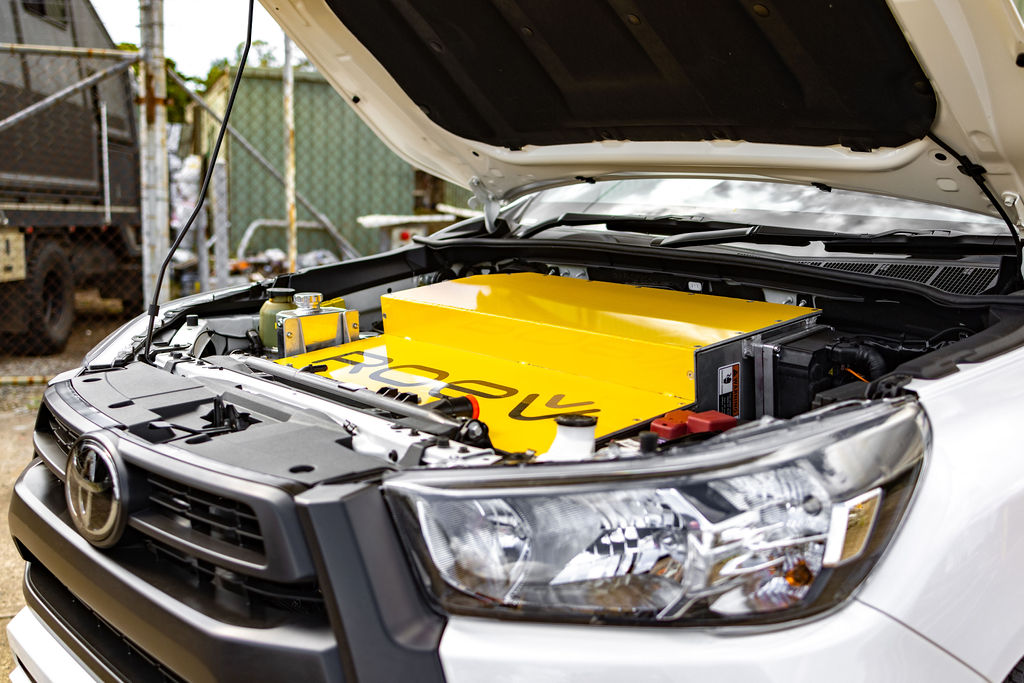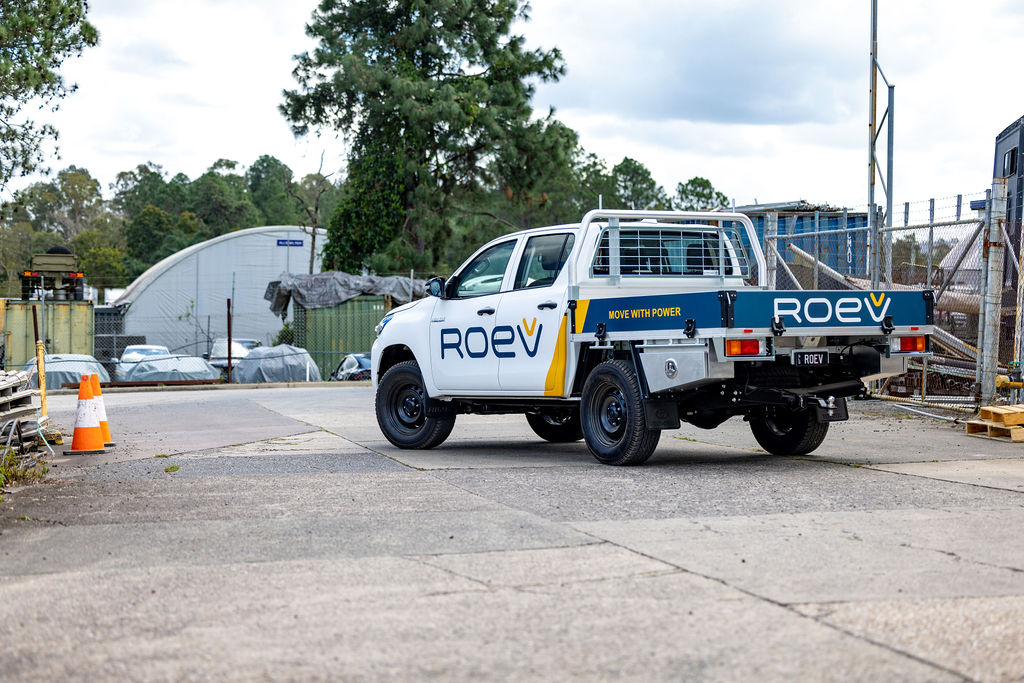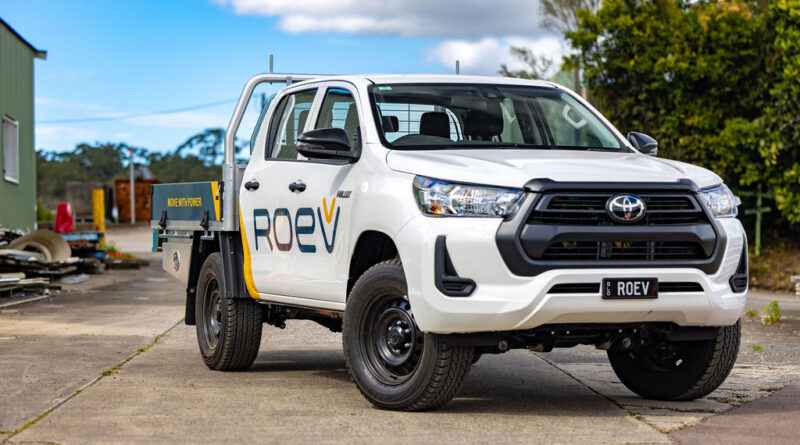Hilux, Ranger EV ute conversions by Roev from $47,990 as company confirms 2023 production
Fancy an electric ute for less than $80K? Australian manufacturer Roev plans to do just that from 2023 by converting Toyota Hiluxes and Ford Rangers to electric, with conversions priced from $47,990.
Aspirational Australian electric vehicle manufacturer Roev has confirmed pricing and details for its Ford Ranger and Toyota Hilux electric ute conversions ahead of planned production from the second quarter of 2023.
The EV conversions will initially only be offered to fleet buyers, who could get into an electric ute for a little over $70,000 – or less if they opt for an EV conversion of an existing vehicle in their fleet.
That makes the locally-converted utes cheaper than the LDV eT60 that has just gone on sale priced from $92,990 drive-away.
READ MORE: Roev EV ute plans explained: Conversions now, manufacturing own vehicle by 2026
READ MORE: Roev reveals fleet interest in EV Toyota HiLux and Ford Ranger, plans SUVs as well
READ MORE: EV ute overload: The electric pick-up trucks coming soon
As well as conversions of new Ford Rangers and Toyota Hiluxes – the two top selling utes in the country – which will be priced from $47,990 (plus the cost of the ute), Roev is gearing up for EV conversions of the same utes with build dates as far back as 2016.
It means fleet buyers can give soon-to-be-retired vehicles a new lease on life with a zero emissions electric drivetrain.
Roev says the decision to provide conversions of older utes was driven by feedback from vehicle fleet managers, providing the potential to keep existing vehicles on the road longer and reduce the overall cost of getting an EV on the road.

“There is huge demand for electric utes in Australia, particularly among large fleets,” says Roev CEO and former Atlassian executive Noah Wasmer.
The Boston Consulting Group recently forecast that 55 percent of new utes sold in Australia by 2030 would be electric.
“Something we heard from a lot of fleets is the desire to convert slightly older vehicles to extend the life of their existing assets.
“With a conversion, you’re not only adding an electric vehicle to your fleet, but you’re also taking a diesel vehicle off the road and preventing many years of future tailpipe C02 emissions.”
The most affordable of the EV conversions will cost $47,990 when hooked up to a two-wheel drive system.
For a Toyota Hilux Workmate that costs $24,225 before on-road costs it means fleets can have an EV ute for a little over $70K.
That’s for a 64kWh battery pack with a claimed 240km of EV range.
A larger 96kWh battery with a range of 360km adds $6000 to that price, taking the overall price to $53,990.
The same systems on a 4×4 ute cost another $3000, so $50,990 for the standard range and $56,990 for the extended range.
Those EV conversion prices only apply to Hiluxes and Rangers built in 2020, 2021 and 2022.

Vehicles produced in 2016, 2017, 2018 and 2019 cost another $1000 to convert.
The reason for the discrepancy is to account for the possibility of additional work on older utes and the fact the engines and gearboxes will have been used more; in completing the conversion Roev removes the engine and gearbox and will try to sell them.
All come with a vehicle-to-load (V2L) function that can provide up to 20 amps of 240V electricity (4.8kW of power) to tools, lights and other worksite appliances.
Roev says it wants to convert 1000 utes in the first 12 months. The conversions have nothing to do with Ford and Toyota, each of which has plans for EV utes in future.
The company says it has had plenty of early interest from a range of fleets.
“We’re very confident the 1000 vehicles will be fully subscribed,” a Roev spokesperson told EV Central.
Down the track, Roev sees vehicle-to-grid (V2G) technology as one of the big appeals of its vehicles, but the first vehicles won’t have that functionality.



